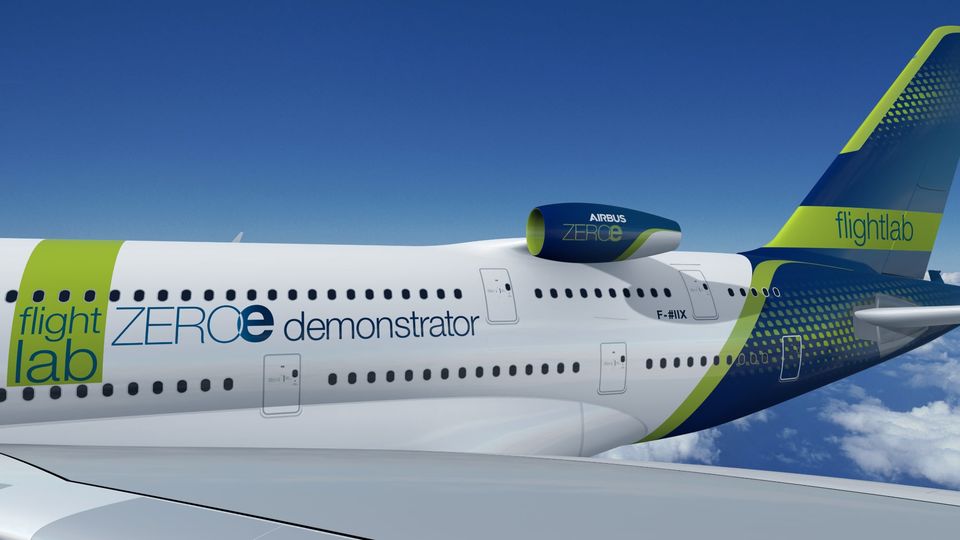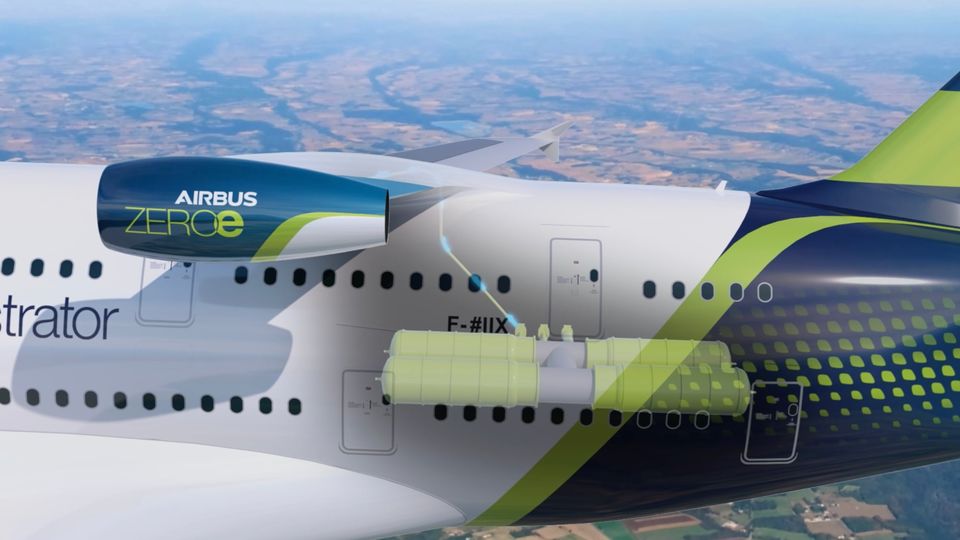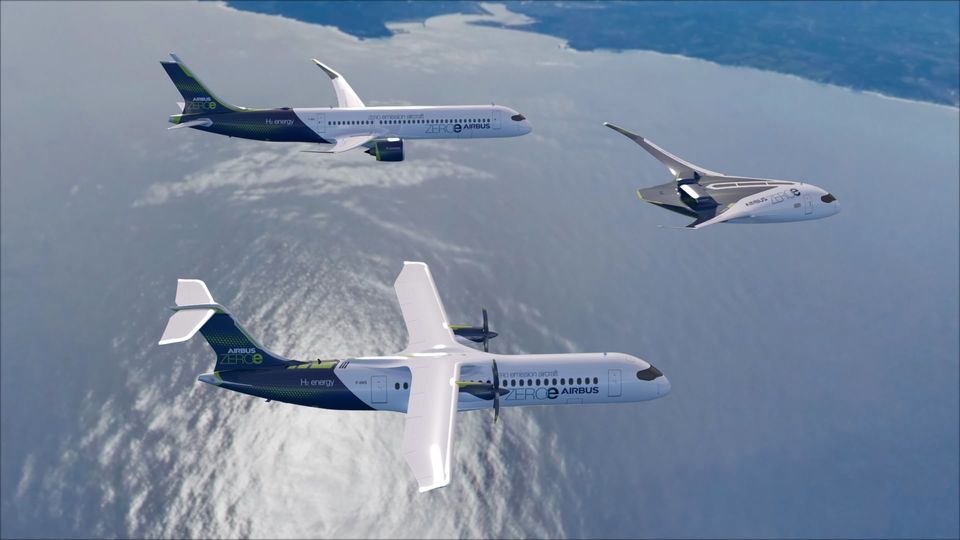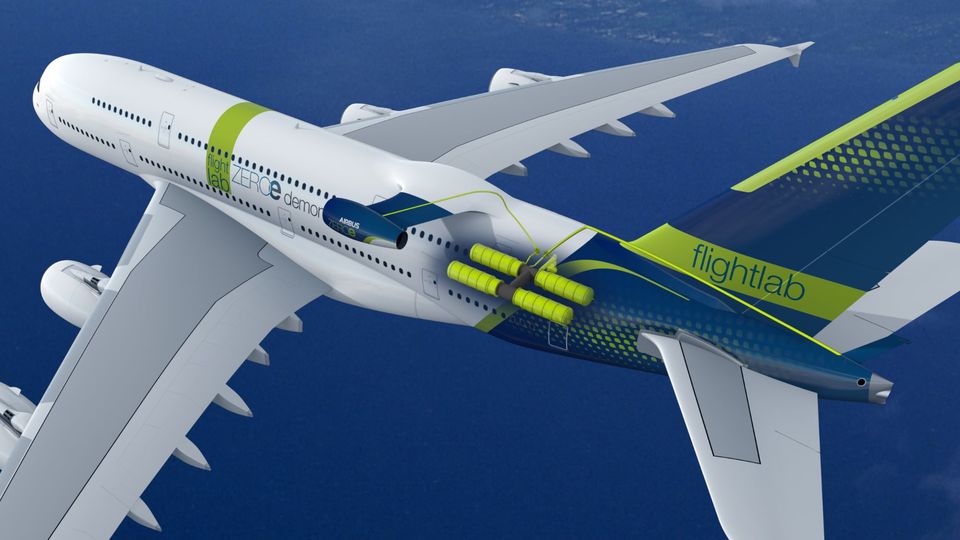Green machine: the A380 superjumbo gets hydrogen power
The double-decker jet will help Airbus chart a course into zero-emission flying.
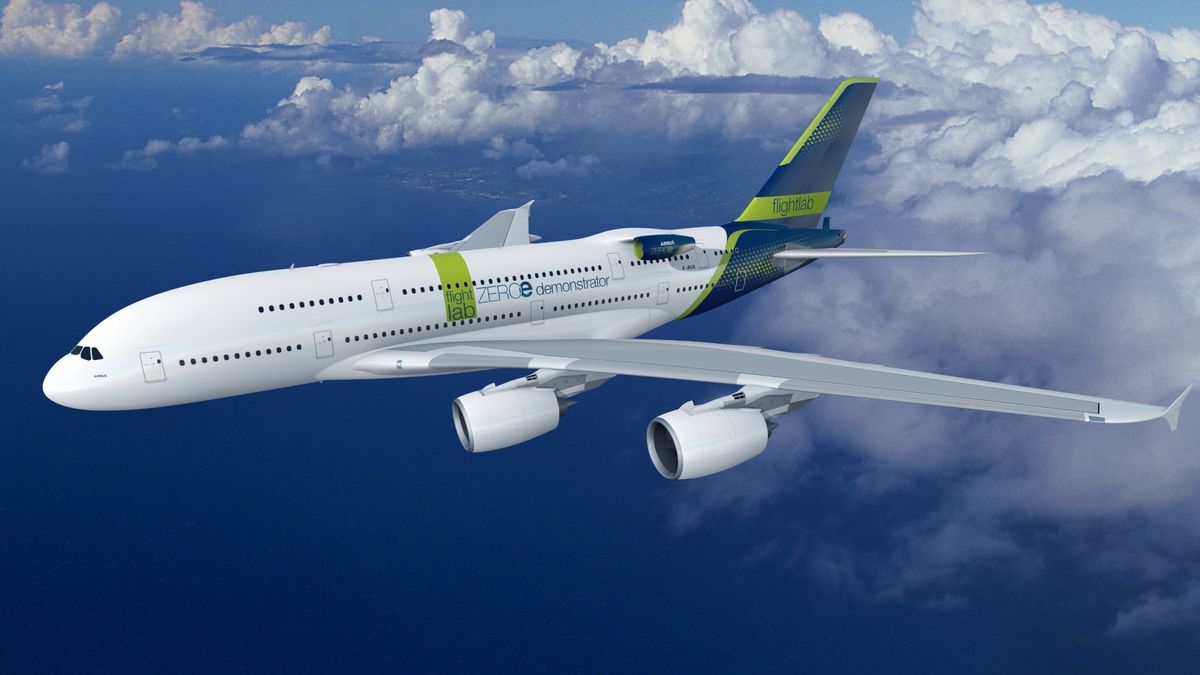
How’s this for irony? The gas-guzzling A380 is set to become an unlikely testbed for fuel-efficient flying, with Airbus outfitting a superjumbo with a cutting-edge hydrogen engine and fuel system.
Indeed, this is the very first A380 ever built – and after ushering in the ‘superjumbo era’, it could pave the way to environmentally-friendlier air travel.
The modified jet will see its four conventional engines complements by a fifth engine adapted for hydrogen and mounted towards the rear of the upper deck.
This will be fed by liquid hydrogen stored in four hermetically-sealed hydrogen tanks on the main deck.
Expected to begin flying in 2026, Airbus will use the A380 demonstrator to test the engine, tanks and the fuel distribution system – in short, the entire ‘hydrogen flying model’ – while also monitoring engine emissions.
Airbus is developing a family of hydrogen-powered ZEROe aircraft which it wants to be flying by 2035, but with a maximum of 200 passengers.
Airbus says it chose the A380 as a hydrogen demonstrator to take advantage of the superjumbo’s size to give engineers room for extra tanks, testing equipment and that fifth engine at the back.
For Airbus, the future of flying has to move away from a century-old reliance on oil, and with a global focus on reaching ‘net-zero’ emissions by 2050, “the 2020s must be decade of change – profound, far reaching and fast change”, Airbus CEO Guillaume Faury declared at a media summit held at Airbus’ Toulouse headquarters.
Flying into a net-zero future
The two leading alternatives to conventional jet fuel are sustainable aviation fuel (SAF) – so-called biofuels produced from sustainable and renewable sources such as feedstock, used cooking oil, sugar cane, forestry residues, animal tallow and other waste products – and hydrogen.
But the challenges of hydrogen involve more than just technical ones of storing it on board aircraft in energy-dense liquid form.
“Yes, we need to have planes developed and manufactured,” Faury said. “That’s in our hands.”
But for Airbus, achieving net zero flight mans “no longer just producing planes” but helping develop the broader ecosystem of production, supply and distribution.
“We need green hydrogen in large quantities available at the airport in the right quantity (and) at the right price.”
And while Airbus has made several investments in hydrogen infrastructure, it’s also backing SAF projects, including the US$200m Qantas-led Australian Sustainable Aviation Fuel Partnership.
The author attended the Airbus Summit at Toulouse as a guest of Airbus
